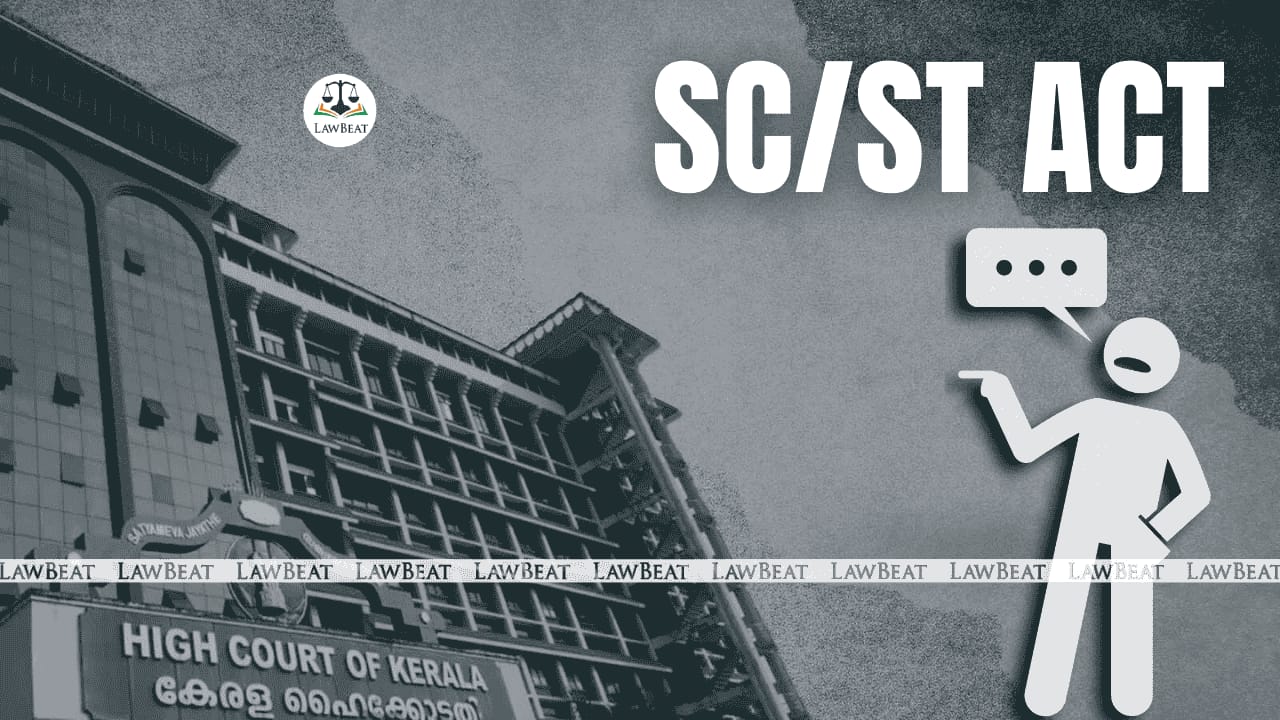Words Must be Laced with Casteist Remarks to Attract SC/ST Act : Kerala HC

The court highlighted that words or statements devoid of explicit casteist undertones, cannot be stretched to invoke the penal provisions of the Act
The Kerala High Court has clarified the difference between a general insult or humiliation and a caste based insult, holding that in order to attract the provisions of the Scheduled Castes and Scheduled Tribes (Prevention of Atrocities) Act, alleged remarks must be unequivocally casteist in nature to constitute an offence.
The court, presided over by Justice A. Badharudeen, made the observation while quashing the proceedings initiated against Dr. Nandakumar, a former director at Mahatma Gandhi University, under the SC/ST, 1989. The accused was charged under Section 3(1)(x) which deals with intentionally insulting or intimidating with intent to humiliate a member of a Scheduled Caste or Scheduled Tribe in any place within public view.
The case arose from a complaint filed by a female research scholar at Mahatma Gandhi University and a member of a Scheduled Caste community. The complainant alleged that Dr. Nandakumar, during her research presentations in 2014, made disparaging comments suggesting that her slides were plagiarised. The complainant argued that the alleged comments, made in a seminar hall in the presence of other students and faculty, humiliated the complainant because of her caste identity.
The police initially closed the investigation in 2016, deeming the claims unsubstantiated. However, the complainant pursued further legal remedies, filing subsequent petitions in 2018 and 2019. The Special Court in Kottayam took cognizance of the case under Section 3(1)(x) of the SC/ST Act based on statements from witnesses, despite earlier dismissals for non-prosecution.
The court observed that the SC/ST Act aims to address offences rooted in caste-based discrimination and that not all insults qualify under its ambit. Relying on the Supreme Court’s ruling in Ramesh Chandra Vaishya V. State of Uttar Pradesh and Another (2023), the court noted that “to contend that every insult or intimidation for humiliation to a person, would not amount to an offence under Section 3(1)(x) of the SC/ST (POA) Act (Unamended), such insult or intimidation should be one targeted at the victim because he was a member of a particular scheduled caste or scheduled tribe. Even if the same be directed generally to a person, who happens to be a Scheduled Caste or Tribe, per se, it may not be sufficient to attract section 3(1) (x) unless such words are laced with casteist remarks.”
The court further observed that calling someone an "idiot" (bewaqoof), a "fool" (murkh), or a "thief" (chor) in a public setting would typically amount to an act intended to insult or humiliate through the use of abusive or offensive language. However, even if such terms are directed at an individual belonging to a Scheduled Caste or Tribe, it would not automatically invoke Section 3(1)(x) of the SC/ST Act unless the remarks are specifically infused with casteist overtones.
In the present case, the court noted inconsistencies in the complainant's statements and a lack of corroborative evidence showing that the accused's remarks were caste-motivated. “A mere assertion, even if made in the presence of others, that, slides presented by the complainant were plagiarised, the same could not lead to commission of offence under the SC/ST (POA) Act (unamended), unless, the other circumstances appearing on the face of the records prima facie show that, the accused had such an intention while making it,” the court remarked.
As a result, the court quashed the proceedings against the accused initiated under the SC/ST Act stating that “the accused did not say anything with casteist remarks in any manner.”
Cause Title: Dr. Nandakumar v State of Kerala [CRL.MC NO. 8843 OF 2023]
Appearances: For the Accused/Petitioner: Advocates Kaleeswaram Raj, P.V. Jeevesh, Thulasi K. Raj, and Silpa Sreekumar and For the Respondents/ Complainant: Public Prosecutor M.P. Prasanth, Advocates Madhusoodanan K.S, M.M. Vinod Kumar, P.K. Rakesh Kumar, K.S. Mizver and M.J. Kirankumar.
